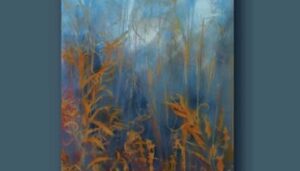My Dear Porter,
I write to you from my own prison, my hothouse Siberia, Yalta. Olga has already returned to the city. By all means, I will be married if you wish it. But on these conditions: everything must be as it has been hitherto—that is, she must live in Moscow while I live in the country, and I will come and see her. Oh give me a wife who, like the moon, won’t appear in my sky every day. Here the work is hard, and I write with much difficulty. I long for the days before the consumption and before I turned inward, generally, thinking myself the artist, before that, when I wrote serenely, the way I eat pancakes now. It is the oppressive heat of these environs that has informed my mood, made me moody, propels me to create, in this theater, a theater of mood. Nothing happens here and yet everything does. There, it happened there, right there at the “yet,” the fulcrum of the previous sentence, when things, things, turned. Turned inside out. Turned outside in. The secret, we know, is the animation of that thing called “nothing,” its loco-motion. Like that actual engine, which moves and at the same time moves. The whole contrivance propelled forward while the mechanism of movement—the driving wheels, the pistons and rods, their hubs and bearings—furiously spins. So our texts move and move. The plot on its rails hems and haws while the clockwork of character, the true motive power, the underlying organic lubrication for such incremental perturbation, supplies the real leverage, the play in the works. I think of you, my dear Porter, there in the hospital wing of your prison mixing potions. Incarcerated, proscribed from action, you, trustee, still live, do you not? Inside, you are inside. Inside, you are forced upon your inner resources. Penitent. And I, stewing here in my Yalta, stew too. My doctors tell me both my lungs are now fully involved. I have, Sydneyvitch, a very active inner life. That is a joke, a joke. My silences? No longer silent. Hear that rattle in my breathing? The express train, a stutter of steel wheels over the joints in the steel rails. We see these things differently, you and I. As a druggist you find the world all chemistry. The reagents and reactants in your reactions acting predictable, your doses dose, and do-see-do. As a doctor, I think, what more is there for me to do now—now that we have stopped the blood-letting, returned the leeches back to the wild—but, after a careful read of the symptoms, to diagnose. And then, after that, to sit, to wait and see how it all comes out. How it all comes out. Before you are your mortar and pestle. The ingredients, atomized and combined, a direct result of the pressures of your own hand, your eye for measurement, the proven formulas. Here, there is my patient, taking the airs on the boardwalk with his family, oblivious, the grape clusters of alveoli in his lungs mildewing as he speaks, more rusty with each breath until when one day… My dear Porter, one day you must settle on a name. It is not difficult to follow you through the pages of McClure’s as your distinctive stories and style are your signature even as you disguise yourself from yourself name after name. It is perhaps our greatest work, our most telling character, the one we construct for our own inhabitation. Our fictions are mere fashion, our wardrobe, even when tailored without prison stripes. Our work a kind of portable prison, Monsieur Porter. We all come from beneath the overcoat, my friend. Imagine there in your many prisons, your prisons inside prisons, a final name, a finished character, the world can alter with a proper suffix, ironic, surprising in a good way, something to hang an -esque onto.
I remain yours, etc.
Antasha

